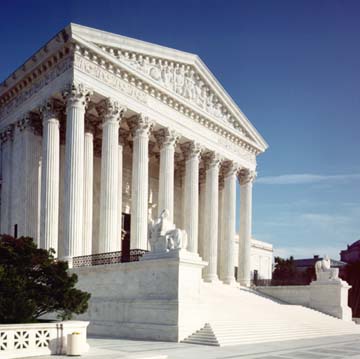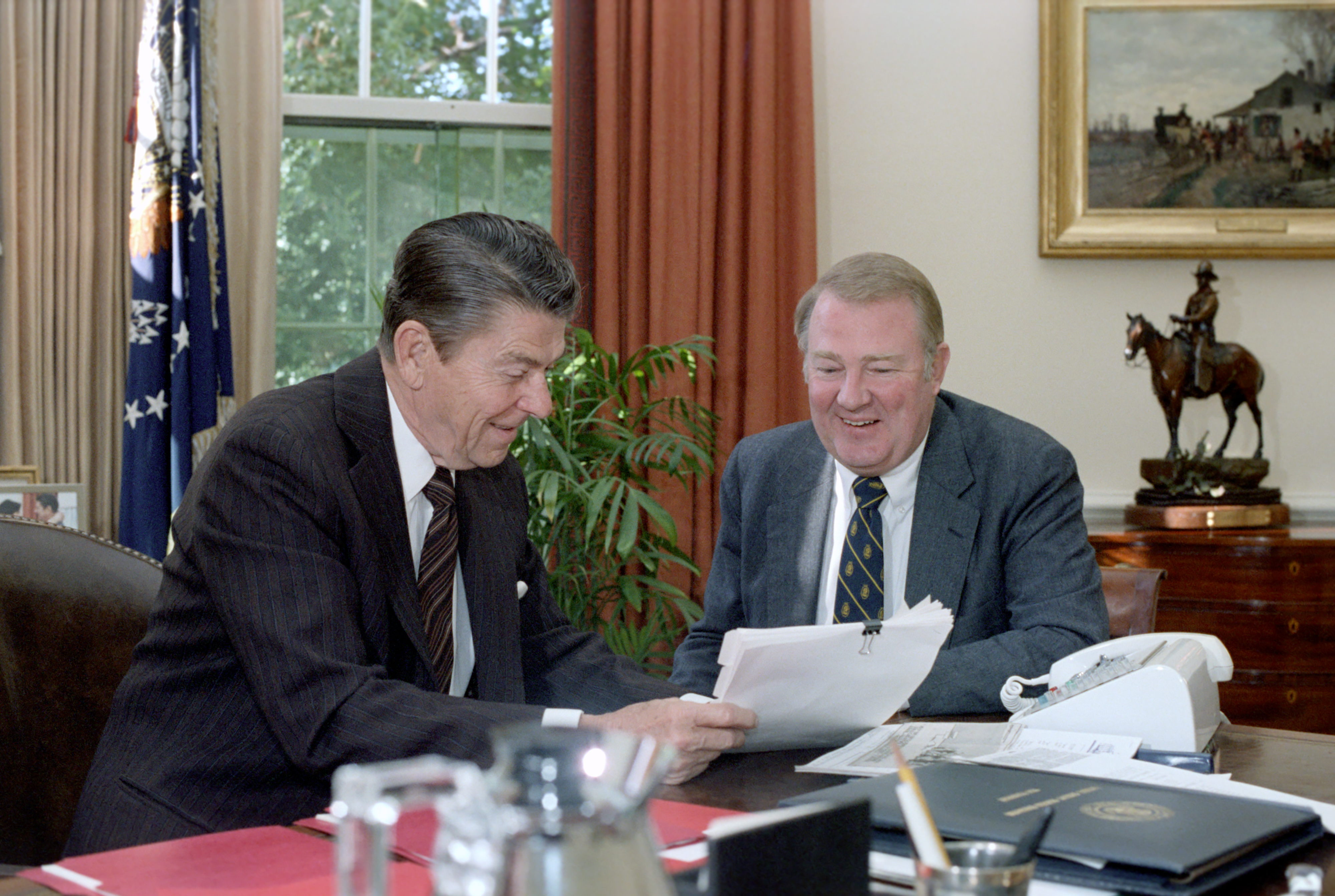|
Originalism
Originalism is a legal theory in the United States which bases constitutional, judicial, and statutory interpretation of text on the original understanding at the time of its adoption. Proponents of the theory object to judicial activism and other interpretations related to a living constitution framework. Instead, originalists argue for democratic modifications of laws through the legislature or through constitutional amendment. Originalism consists of a family of different theories of constitutional interpretation and can refer to original intent or original meaning. Critics of originalism often turn to the competing concept of the Living Constitution, which asserts that a constitution should evolve and be interpreted based on the context of current times. Originalism should not be confused with strict constructionism. Contemporary originalism emerged during the 1980s and greatly influenced American legal culture, practice, and academia. Over time, originalism becam ... [...More Info...] [...Related Items...] OR: [Wikipedia] [Google] [Baidu] |
Living Constitution
The Living Constitution, or judicial pragmatism, is the viewpoint that the U.S. constitution holds a dynamic meaning even if the document is not formally amended. Proponents view the constitution as developing alongside society's needs and provide a more malleable tool for governments. The idea is associated with views that contemporary society should be considered in the constitutional interpretation of phrases. The Constitution is referred to as the living law of the land as it is transformed according to necessities of the time and the situation. Some supporters of the living method of interpretation, such as professors Michael Kammen and Bruce Ackerman, refer to themselves as organicists. The arguments for the Living Constitution vary but can generally be broken into two categories. First, the pragmatist view contends that interpreting the Constitution in accordance with its original meaning or intent is sometimes unacceptable as a policy matter and so an evolving ... [...More Info...] [...Related Items...] OR: [Wikipedia] [Google] [Baidu] |
Robert Bork
Robert Heron Bork (March 1, 1927 – December 19, 2012) was an American legal scholar who served as solicitor general of the United States from 1973 until 1977. A professor by training, he was acting United States Attorney General and a judge on the U.S. Court of Appeals for the D.C. Circuit from 1982 to 1988. In 1987, President Ronald Reagan nominated Bork to the U.S. Supreme Court, but the Senate rejected his nomination after a contentious and highly publicized confirmation hearing. Bork was born in Pittsburgh, Pennsylvania, and received both his undergraduate and legal education at the University of Chicago. After working at the law firms of Kirkland & Ellis and Willkie Farr & Gallagher, he served as a professor at Yale Law School. He became a prominent advocate of originalism, calling for judges to adhere to the original understanding of the United States Constitution, and an influential antitrust scholar, arguing that consumers often benefited from corporate mergers an ... [...More Info...] [...Related Items...] OR: [Wikipedia] [Google] [Baidu] |
Original Intent
Original intent is a theory in law concerning constitutional and statutory interpretation. It is frequently used as a synonym for originalism; while original intent is one theory in the originalist family, it has some salient differences which has led originalists from more predominant schools of thought such as original meaning to distinguish original intent as much as legal realists do. Approach Original intent maintains that in interpreting a text, a court should determine what the authors of the text were trying to achieve, and to give effect to what they ''intended'' the statute to accomplish, the actual ''text'' of the legislation notwithstanding. As in purposivism, tools such as legislative history are often used. One example of original intent is in Freeman v. Quicken Loans Inc., 012 The plaintiffs took out mortgage loans from Quicken Loans. In 2008 they sued Quicken Loans arguing that that respondent had violated Real Estate Settlement Procedures Act (RESPA) Secti ... [...More Info...] [...Related Items...] OR: [Wikipedia] [Google] [Baidu] |
Constitutional Interpretation
Judicial interpretation is the way in which the judiciary construes the law, particularly constitutional documents, legislation and frequently used vocabulary. This is an important issue in some common law jurisdictions such as the United States, Australia and Canada, because the supreme courts of those nations can overturn laws made by their legislatures via a process called judicial review. For example, the United States Supreme Court has decided such topics as the legality of slavery as in the ''Dred Scott'' decision, and desegregation as in the '' Brown v Board of Education'' decision, and abortion rights as in the '' Roe v Wade'' decision. As a result, how justices interpret the constitution, and the ways in which they approach this task has a political aspect. Terms describing types of judicial interpretation can be ambiguous; for example, the term ''judicial conservatism'' can vary in meaning depending on what is trying to be "conserved". One can look at judicial int ... [...More Info...] [...Related Items...] OR: [Wikipedia] [Google] [Baidu] |
Strict Constructionism
In the United States, strict constructionism is a particular Philosophy of law, legal philosophy of judicial interpretation that limits or restricts the powers of the federal government only to those ''expressly'', i.e., explicitly and clearly, granted to the government by the United States Constitution. While commonly confused with textualism or originalism, they are not the same, and in fact frequently contradict, as textualists like Antonin Scalia have noted. Different uses Strict meaning Strict construction requires a judge to apply the text only as it is ''expressly'' written, i.e., read Literal and figurative language, perfectly literally. This can contradict the commonly-understood meaning of a law. For example, consider a law that specifies "the use of a knife when committing a crime should be punished by ten years in prison." This would commonly be understood as prohibiting the use of a knife to threaten or injure another person. However, read purely literally, the law ... [...More Info...] [...Related Items...] OR: [Wikipedia] [Google] [Baidu] |
Paul Brest
Paul Brest (born 1940) is an American legal scholar who is a former president of the William and Flora Hewlett Foundation and a former dean of Stanford Law School. He is credited with coining the name originalism to describe a particular approach to interpreting the United States Constitution. Education and early career Brest received his Bachelor of Arts degree from Swarthmore College in 1962 and his Bachelor of Laws from Harvard Law School in 1965. Following law school, Brest clerked for Judge Bailey Aldrich of the Court of Appeals for the First Circuit and for Justice John Marshall Harlan II of the Supreme Court of the United States. He also practiced as a civil rights litigator with the NAACP Legal Defense and Education Fund in Mississippi. Academic career In 1969, Brest joined the faculty of Stanford Law School, serving as Dean of the law school from 1987 until 1999, when he voluntarily stepped down to become president of the William and Flora Hewlett Foundation. His ... [...More Info...] [...Related Items...] OR: [Wikipedia] [Google] [Baidu] |
Raoul Berger
Raoul Berger (January 4, 1901 – September 23, 2000)ith Philip Kurland * ''The Fourteenth Amendment and the Bill of Rights'' (1989) See also *Living Constitution Notes {{DEFAULTSORT:Berger, Raoul 1901 births 2000 deaths 20th-century American Jews American people of Ukrainian-Jewish descent American legal scholars American legal writers Harvard Law School faculty University of Cincinnati alumni Northwestern University Pritzker School of Law alumni UC Berkeley School of Law faculty Harvard Law School alumni 20th-century American non-fiction writers ... [...More Info...] [...Related Items...] OR: [Wikipedia] [Google] [Baidu] |
Scene At The Signing Of The Constitution Of The United States
''Scene at the Signing of the Constitution of the United States'' is a 1940 oil-on-canvas painting by Howard Chandler Christy, depicting the Constitutional Convention (United States), Constitutional Convention signing the Constitution of the United States, U.S. Constitution at Independence Hall in Philadelphia on September 17, 1787. Along with ''Washington Crossing the Delaware (1851 painting), Washington Crossing the Delaware'' by Emanuel Leutze, the painting is one of the most famous depictions of the early days of the United States. Christy created the painting in April 1940; it is so large () that he painted it in a sail loft. It currently is displayed along the east stairway in the United States House of Representatives, House of Representatives wing in the United States Capitol, Capitol building. Description Only 39 of the 55 delegates are pictured in the painting; not included are the three delegates who did not sign the Constitution or the 13 delegates who left the conve ... [...More Info...] [...Related Items...] OR: [Wikipedia] [Google] [Baidu] |
Warren Court
The Warren Court was the period in the history of the Supreme Court of the United States from 1953 to 1969 when Earl Warren served as the chief justice. The Warren Court is often considered the most liberal court in U.S. history. The Warren Court expanded civil rights, civil liberties, judicial power, and the federal power in dramatic ways. It has been widely recognized that the court, led by the liberal bloc, created a major " Constitutional Revolution" in U.S. history. The Warren Court brought "one man, one vote" to the United States through a series of rulings, and created the Miranda warning. In addition, the court was both applauded and criticized for bringing an end to ''de jure'' racial segregation in the United States, incorporating the Bill of Rights (i.e. including it in the 14th Amendment Due Process clause), and ending officially sanctioned voluntary prayer in public schools. The period is recognized as the most liberal point that judicial power had ever reached ... [...More Info...] [...Related Items...] OR: [Wikipedia] [Google] [Baidu] |
Burger Court
The Burger Court was the period in the history of the Supreme Court of the United States from 1969 to 1986, when Warren E. Burger served as Chief Justice of the United States. Burger succeeded Earl Warren as Chief Justice after Warren's retirement, and served as Chief Justice until his retirement, when William Rehnquist was nominated and confirmed as Burger's replacement. The Burger Court is generally considered to be the last liberal court to date. It has been described as a transitional court, due to its transition from having the liberal rulings of the Warren Court to the conservative rulings of the Rehnquist Court. A symbol of the conservative "retrenchment" promised by President Richard Nixon in the 1968 election, Burger was often overshadowed by the liberal William Brennan and the more conservative William Rehnquist. The Burger Court had a less generous interpretation of the protections offered by the Fourth Amendment and the Fifth Amendment than those of the Warren Cou ... [...More Info...] [...Related Items...] OR: [Wikipedia] [Google] [Baidu] |
Edwin Meese
Edwin Meese III (born December 2, 1931) is an American attorney, law professor, author and member of the Republican Party who served in Ronald Reagan's gubernatorial administration (1967–1974), the Reagan presidential transition team (1980–81), and the Reagan administration (1981–1985). Following the 1980 presidential election, Reagan considered him for the White House Chief of Staff position, but James Baker was chosen instead. Meese was eventually appointed and confirmed as the 75th United States Attorney General (1985–1988), a position he held until resigning in 1988 amidst the Wedtech scandal. Meese currently serves as a member of the board of trustees for The Heritage Foundation, a Washington, D.C.–based think tank. He was also a distinguished visiting fellow at the Hoover Institution at Stanford University. He is a member of the national advisory board of the Center for Urban Renewal and Education and a member of the board of directors of the Federalist Soci ... [...More Info...] [...Related Items...] OR: [Wikipedia] [Google] [Baidu] |




